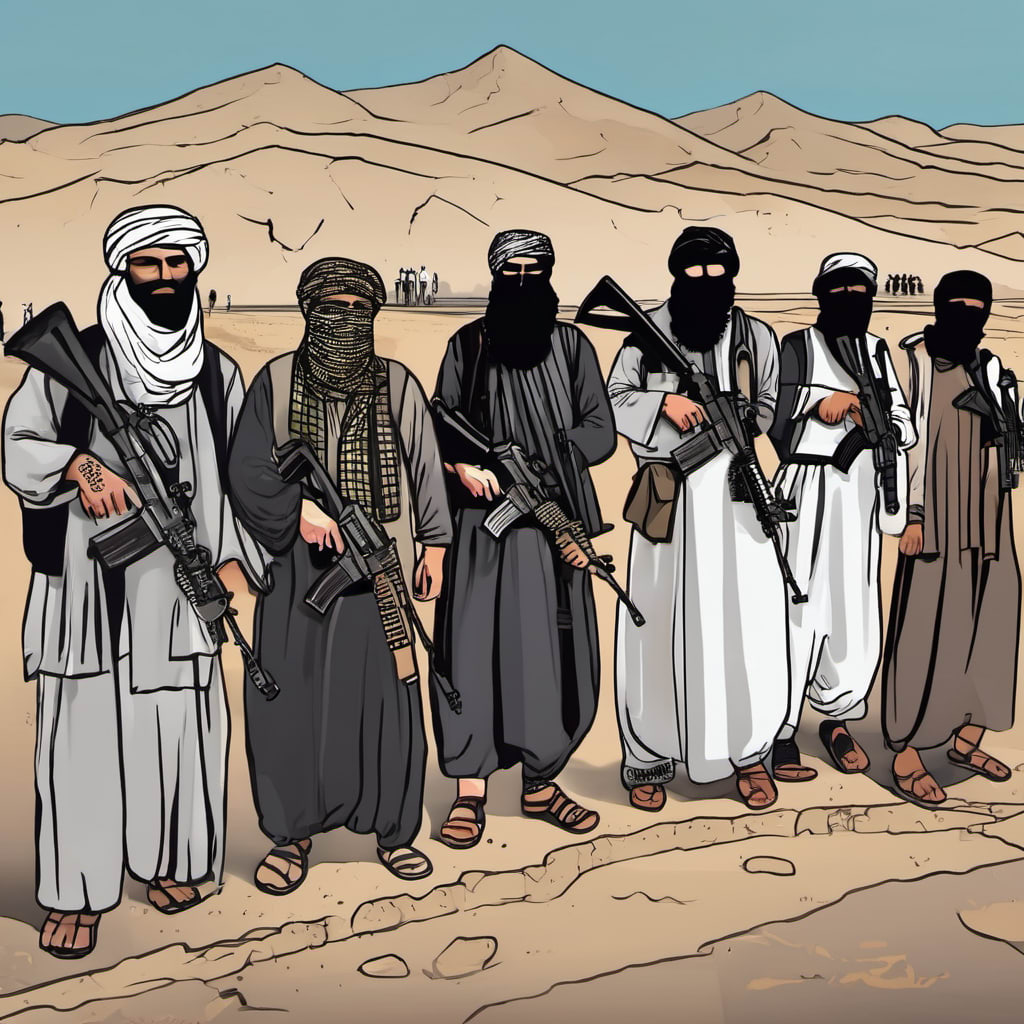The Complex History of Afghanistan
From the Cold War to the Resurgence of the Taliban

The tumultuous history of Afghanistan is marked by a series of geopolitical events, from the Cold War dynamics that led to the rise of the Mujahadeen to the recent resurgence of the Taliban. This article delves into the intricate web of alliances, conflicts, and ideological shifts that have shaped the nation's destiny.
The Cold War and the Mujahadeen:
During the Cold War, Afghanistan became a battleground for ideological supremacy. Observing the Soviet-aligned Afghan government's social reforms and ties to the Soviet Union, the United States decided to support the Mujahadeen, devout Muslim insurgents opposing the government. This covert aid fueled violent insurrections against the Soviet-aligned regime, leading to the Soviet Union's invasion of Afghanistan in 1979.
The Mujahadeen, with U.S. backing, successfully resisted Soviet forces, employing guerrilla tactics and benefiting from significant support in terms of weapons and resources. By the late 1980s, the Soviet Union began to crumble, leading to its troops withdrawing from Afghanistan.
The Rise of the Taliban:
However, the aftermath of the Soviet withdrawal did not bring immediate peace to Afghanistan. Disagreements among various Mujahadeen factions over power-sharing resulted in violent conflicts. During this period, Mullah Omar, a former Mujahadeen commander, emerged as a key figure. With a vision to restore peace, he led a group of madrasah students, known as the Taliban, to seize control of Afghanistan by 1996.
The Taliban ruled with an iron fist, suppressing opposition, restricting women's rights, and denying essential resources to the population. Their draconian rule continued until 2001 when a U.S.-led coalition invaded in response to the 9/11 attacks orchestrated by Osama Bin Laden, who was sheltered by the Taliban.
Post-9/11 and the Resurgence of the Taliban:
The U.S.-led coalition overthrew the Taliban, leading to a period of reconstruction and attempts at establishing a stable government. However, the situation remained precarious, and in 2021, the U.S. withdrew its forces, creating a power vacuum. Seizing this opportunity, the Taliban swiftly regained control of Afghanistan, prompting concerns about the country becoming a haven for extremist groups.
Amidst this power shift, a faction known as ISIS-K (Islamic State in Khorasan Province) emerged. Founded in 2015, ISIS-K sought to establish itself as an affiliate of the Islamic State in Afghanistan and Pakistan. While sharing some ideological roots with the Taliban, ISIS-K harbored more extreme beliefs and actively opposed the Taliban.
The conflict between the Taliban and ISIS-K intensified, leading to clashes over territory and ideological differences. Despite setbacks for ISIS-K, the group remains active, and concerns persist about the potential for increased terrorist activities in Afghanistan.
Afghanistan's complex history, intertwined with Cold War politics, internal conflicts, and external interventions, has left an indelible mark on the nation. The resurgence of the Taliban and the presence of groups like ISIS-K underscore the ongoing challenges the country faces in its quest for stability and peace. The international community continues to grapple with the implications of these historical events, striving to navigate a path forward for Afghanistan and its people.
The resilience of the Afghan people and their yearning for a peaceful existence serve as a driving force in the collective efforts to rebuild and reconstruct the nation. The intricate dance between historical legacies, present challenges, and future aspirations continues to shape Afghanistan's narrative on the world stage, prompting the international community to remain actively engaged in supporting the country's pursuit of lasting stability and peace.
About the Creator
Comfort Philisiwe Maseko
A dynamic and talented young writer hailing from the vibrant city of Johannesburg, Born and raised in South Africa, I draw inspiration from the rich cultural tapestry and diverse narratives that define Johannesburg.
Enjoyed the story? Support the Creator.
Subscribe for free to receive all their stories in your feed. You could also pledge your support or give them a one-off tip, letting them know you appreciate their work.






Comments
There are no comments for this story
Be the first to respond and start the conversation.